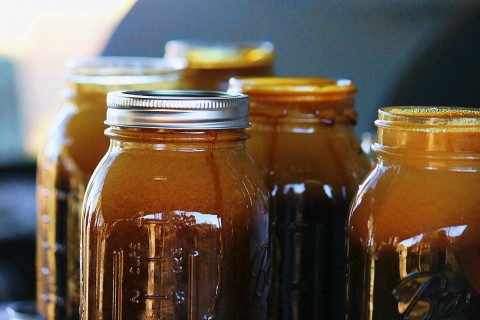 Nashville, TN – Autumn is generally regarded as a sweet season, the year’s peak harvest time. You could say Tennessee’s sweetest harvest is contained in the jars of honey and sorghum syrup now lining shelves at farms, orchards and farmers markets across the state.
Nashville, TN – Autumn is generally regarded as a sweet season, the year’s peak harvest time. You could say Tennessee’s sweetest harvest is contained in the jars of honey and sorghum syrup now lining shelves at farms, orchards and farmers markets across the state.
Honey is often harvested twice per year, in spring and fall. Flavor is determined solely by the nectar source, giving some honeys stronger flavor than others. As a rule, the lighter the honey’s color the milder its flavor, but buying directly from the beekeeper is the best way to learn the characteristics of a particular honey.

Honey which has not been heated as part of the extraction or purification processes will still contain pollen, propolis, honeycomb and live enzymes. This raw honey is gaining popularity with some who see it as a natural way to treat environmental allergies.
Man has not yet found a way to make honey; bees are the sole processors of that liquid gold. Sorghum syrup, on the other hand, is one of the oldest sweeteners on earth and in colonial times was processed in nearly every American home.

Sorghum syrup is produced when the extracted juice from the sorghum plant is boiled down. The green-amber, tangy-sweet syrup retains all of the plant’s nutrients including calcium, protein, fiber, iron, potassium, phosphorus and zinc. Tennessee is one of the nation’s leading states in sorghum syrup production.
Sorghum and molasses are not the same thing. Molasses is produced when sugar cane is cooked into granulated sugar. Modern day molasses contains as much as 20 percent corn syrup and has no nutritional value.
Store honey and sorghum at room temperature. Both products can crystallize, but putting in a pan of warm water or the microwave for just a few seconds will restore it to its previous form.
Find local sorghum and honey sources, as well as recipes using sorghum, honey and other seasonal farm-direct foods at www.PickTnProducts.org


